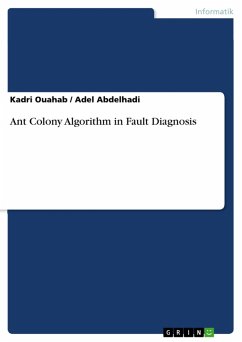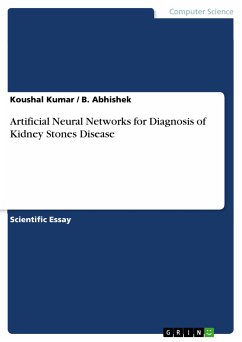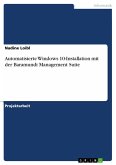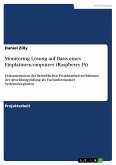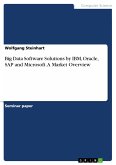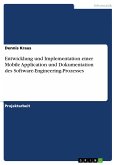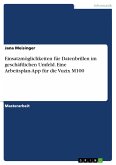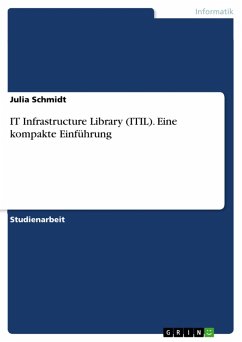Fachbuch aus dem Jahr 2016 im Fachbereich Informatik - Angewandte Informatik, , Sprache: Deutsch, Abstract: In this book, we propose several modules of diagnosis for complex and dynamic systems. These modules are based on the three algorithms colony of ants, which are AntTreeStoch, Lumer & Faieta and Binary ant colony. These algorithms have been chosen for their simplicity and their vast field of application. However, these algorithms cannot be used under their basal form for the development of diagnostic modules since they have several limitations. We have also proposed several adaptations in order that these algorithms can be used in diagnostic modules. We have proposed a parallel version of the algorithm AntTreeStoch based on a reactive multi-agents system. This version allows minimizing the influence of initial sort on the outcome of classification. We have also introduced a new parameter called Sid, which allows several ants to connect to the same position, and we have modified the movements of ants by promoting the path of the ant the most similar. For the algorithm Lumer & Faieta, we have accelerated the speed of construction of classes by adding a speed setting different for each Ant. To reduce the number of movements, we have proposed a new variable that allows saving the identifiers of objects displaced by the same Ant. To improve the quality of classification, we have also added to the algorithm of the indices to report the classes trunks constructed. For the algorithm Binary ant colony, we have proposed a variant called "Hybrid wrapper/filter-based ACO-SVM". This algorithm allows the selection of parameters. It combines the techniques of filters and enveloping methods in taking advantage of the rapidity of the Fisher report and the adaptation of selected settings to the classifier SVM. It improves the quality of classification according to the data nature in the database for learning and the type of the kernel function used. It also allows adjusting the hyperparameters of the kernel function. We tested these algorithms based on data from two industrial systems, which are the sintering system and the pasteurization system, as well on a few databases of UCI (University of California, Irvine).
Dieser Download kann aus rechtlichen Gründen nur mit Rechnungsadresse in A, B, BG, CY, CZ, D, DK, EW, E, FIN, F, GR, HR, H, IRL, I, LT, L, LR, M, NL, PL, P, R, S, SLO, SK ausgeliefert werden.
Hinweis: Dieser Artikel kann nur an eine deutsche Lieferadresse ausgeliefert werden.

